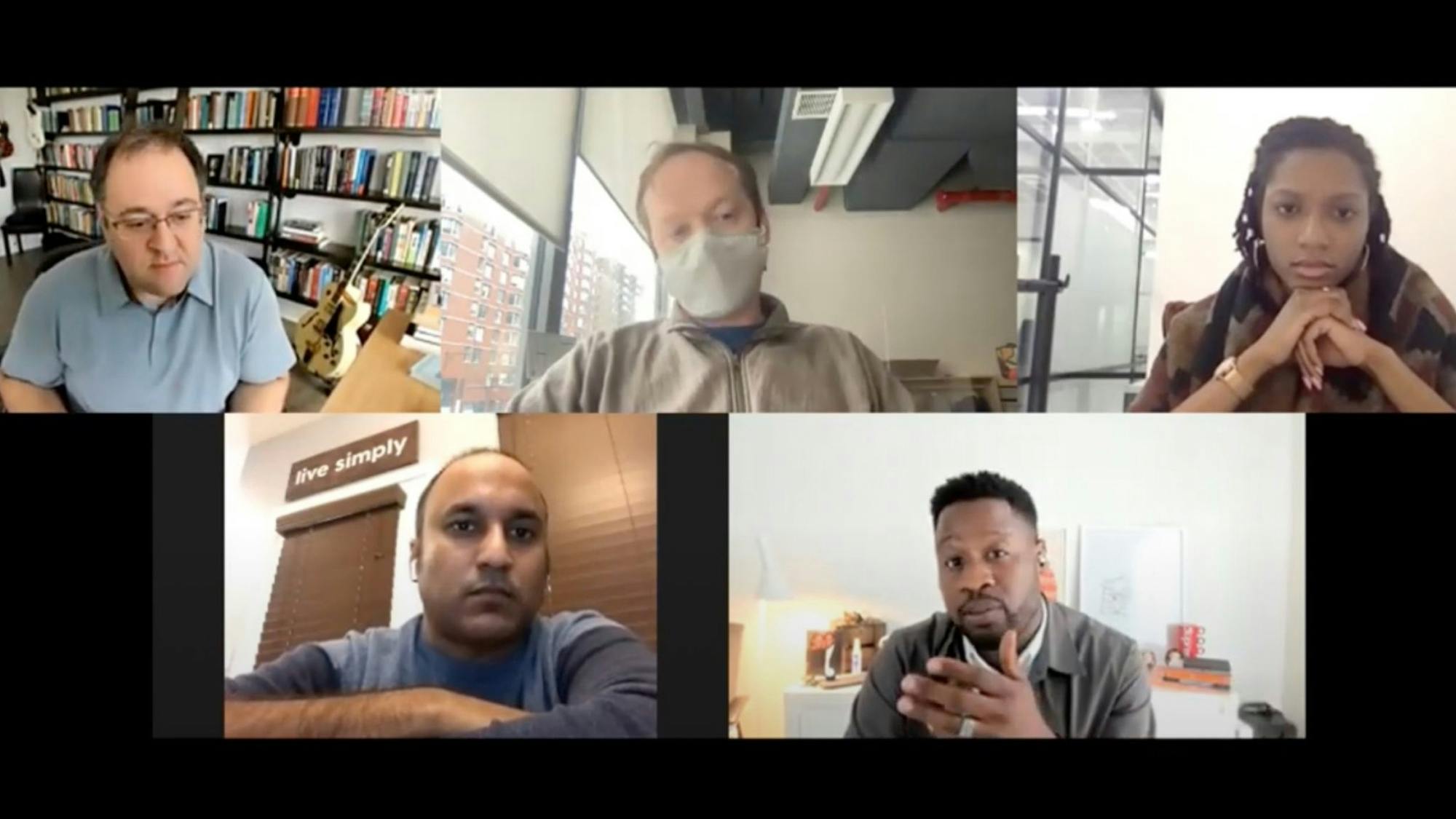The Purpose and Pedagogy of Black History Month: A Panel Discussion with Higher Ground’s Advisory Group on Montessori and Identity
The Higher Ground Education Team
As Black History Month begins, our Montessori and Identity panel gathers to discuss what we want for our kids with respect to race in education.
Last week, Higher Ground’s advisory group on Montessori and Identity gathered for a discussion on the purpose and value of African American history and closely connected questions of identity and humanism.
Moderated by Higher Ground’s VP of Pedagogy, Matt Bateman, the panel dove into topics including the original purpose of Black History Month (and why we might want to rethink it), the complexity of the learning process around the history of slavery and race, and what, exactly, we want for our kids with respect to race in education.
With wide-ranging perspectives from panelists Kmele Foster, partner at Freethink Media, Chloé Vardary founder of the Theory of Enchantment, Greg Salmieri, senior scholar of philosophy at the Salem Center at UT Austin, and Ray Girn, CEO of Higher Ground, this is a discussion you don’t want to miss.

Highlights include:
5:10 – How do you think about Black History Month?
6:52 – Ray Girn: History is for understanding; it can’t be aimed directly at social causes.
9:52 – Kmele Foster: The original purpose of Black History Month, and how we might want to rethink it.
11:07 – Kmele Foster: There’s a danger of Balkanizing history if you look at it through the lens of race. African American history is American history, and it’s for everyone.
15:34 – Chloé Valdary: The purpose of Black History Month needs to be in service of the “out of many, one” spirit of the American project.
17:02 – Chloé Valdary: Black history should be integrated, year-round, and relevant to everyone—just like the rest of history.
21:08 – Greg Salmieri: Black History Month is often implemented as a few tokenized, disconnected anecdotes. But in fact it’s an incredibly rich, important, and fascinating story. It’s amazing, and almost no one learns it in school.
30:22 – Chloé Valdary: “Black” history isn’t really about skin color first, it’s about the history of the people, and their ancestors, enslaved and brought to America from West Africa.
32:20 through 44:22 – Kmele Foster, and then all panelists: The complexity of the learning process around the history of slavery and race.
44:32 through 54:07 – Kmele Foster, Chloé Valdary, Greg Salmieri: What is the role of slavery in BHM? Is it central, or are we trying to get away from that perspective?
56:12 – Matt Bateman and Greg Salmieri: You can’t reduce everything to slavery. It’s an input, and event, and then there’s the agency of everyone involved in responding to it: ideas, moral ideals, choices, and much more.
58:37 – Kmele Foster, Ray Girn: If you focus too much on race in history, even in “African American history” you’re going to miss out on other aspects of the story.
1:01:52 – Chloé Valdary: The culture of West Africa is very relevant to the question of what’s distinct about American culture.
1:05:27 to 1:16:52 – What do you want for your kids with respect to race in education?
1:17:00 – Ray Girn: Let children be curious about these issues and understand it in stages, without making it taboo. Let them make it their own.
1:19:12 – What is the Theory of Enchantment, and how does it pedagogically approach questions of race in history?
Want more?
- Read Guidepost Montessori’s Statement Addressing Racism
- Check out Montessorium's Agency and Identity initiative
- Peruse the outline of our high school unit on Race in Human Life
- Read an internal working draft essay on Montessori and Identity

